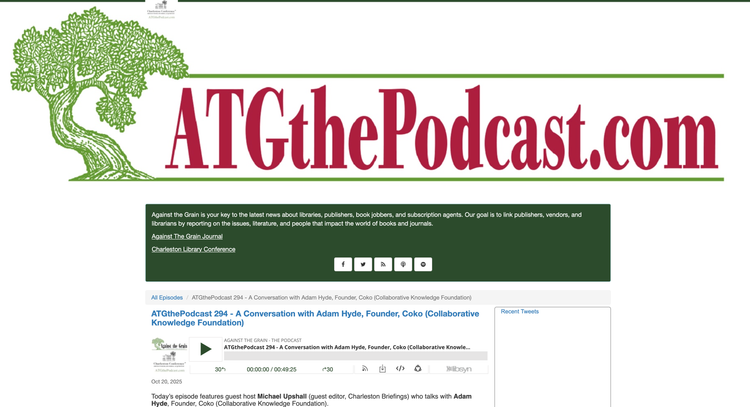Publishing Fast and Free

The term "fast and free" captures the essence of a continuous epoch in the internet age, describing a content creation and distribution model that emphasizes rapid production and dissemination of content at no cost to the consumer. This trend began with the advent of the internet and gained momentum with Web 2.0, which marked the dawn of user-generated content. Now, with the rise of AI technology, we are witnessing an even greater acceleration of this trend, heralding an era of agent-generated content.
As the traditional publishing industry wrestles with the challenges presented by an increasing amount of free and fast content, it could be beneficial to seek inspiration from 'fast and free' business models already successfully operating within the publishing world.
A Thriving Fast and Free Publishing Model: Book Sprints
One such example is Book Sprints (which I founded many years ago), which has been operating under these principles as a business for over 10 years and has produced a diverse range of works.
Organizations commission Book Sprints to facilitate the entire process, from ideation to the production of a print-ready book in 5 days ("Zero to book in 5 days or less"). This approach leaves the decision of how to distribute the content up to the commissioning organization, which often opts to publish it for free.
The Book Sprints business model effectively turns the traditional publishing paradigm upside down. Instead of relying on book sales for revenue, Book Sprints focuses on charging for the facilitation and rapid creation of books. In a departure from the norm where publishers are paid for the books they sell, Book Sprints effectively gets paid for the books they produce.
Debunking the Slow-is-Better Publishing Myth
A common criticism raised by those who haven't experienced a Book Sprint is questioning the quality of the final product. However, we can attest that the quality is indeed high, as evidenced by the diverse range of organizations that create books with Book Sprints, the significant number of organizations that return to Book Sprints for subsequent works, and the numerous prestigious publishers that have published works created through the Book Sprints process.
The range of books facilitated by Book Sprints is incredibly diverse. Although the portfolio predominantly features non-fiction works, it does include one work of fiction. The non-fiction works span a broad spectrum, encompassing activist manifestos, textbooks, corporate documentation, policy handbooks, and more.
The variety of organizations that have commissioned Book Sprints is equally diverse, ranging from educational institutions and corporations to non-profits and government agencies. Examples of organizations that have engaged with Book Sprints include tech giant Cisco, energy sector transparency advocate OpenOil, global nonprofit World Wildlife Fund (WWF), the United Nations Development Programme (UNDP), University of British Columbia, and The British Library. The participation of these organizations from different sectors and industries highlights the broad appeal and versatility of the Book Sprints model.
Book Sprints books have also been picked up and published by large, established publishers. Publishers such as O'Reilly, The MIT Press, Goldsmiths Press, Routledge, Springer International, Cambridge University Press & Assessment, Hanser Verlag, Waxmann Verlag, and Haufe Group have all published works facilitated by Book Sprints.
Faster: Book Sprints and AI
In a bid to keep up with technological advancements, Book Sprints is now experimenting with AI to enhance and streamline the book creation process even further. They have partnered with Coko (which I also founded) to explore the potential of AI in the Book Sprints workflow, building interfaces to GPT-4 using the Ketida single-source book publishing platform.
Conclusion
As AI continues to evolve and the prevalence of 'fast-and-free' content models grows, publishers need not be left on the sidelines. If publishers are willing to adapt to the challenges presented by free and fast content then they can turn a lot from organisations like Book Sprints.
The following are some very high level suggestions for traditional publishers thinking about how to adapt to the increasingly 'fast-and-free' content landscape:
- Have a look at business models in publishing that focus on services - particularly content facilitation (see also Book Dash).
- Learn about single source publishing processes and how AI can enhance and streamline the publishing process while maintaining high-quality output.
- Consider collaborating with organizations like Book Sprints that have succeeded in developing 'fast-and-free' business models, learning from their experiences and best practices.
© Adam Hyde, 2023, CC-BY-SA
Image public domain, created by MidJourney from prompts by Adam.






Member discussion